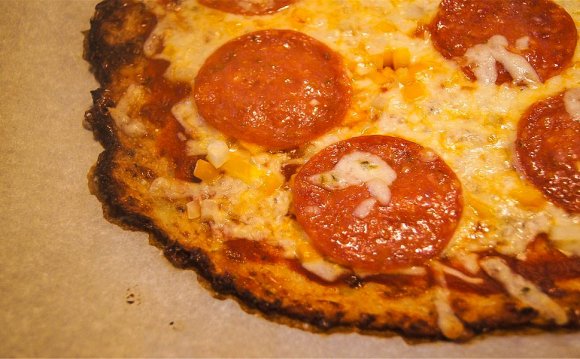
 Fatty meats and eggs yolks are low-carb but high-calorie.
Fatty meats and eggs yolks are low-carb but high-calorie.
Low-carbohydrate diets can be effective for weight loss. In a study published in "The New England Journal of Medicine" in July 2008, participants on a low-carb diet lost more weight than those on a low-fat or Mediterranean-style diet. But a low-carb diet can quickly become ineffective if you're eating a lot of fatty meats, cheeses and other high-calorie foods. Get the best results from your diet by choosing foods that are low in carbs and calories.
Low-Carb, Low-Cal Basics
Numerous types of low-carb diets are available. Certain types limit carbs to 20 grams or fewer per day, while others simply advise you to cut out all processed foods and sugar, getting your carbs from whole food sources. No matter which type of low-carb diet you're following, it's important to get enough calories to support your everyday functioning and physical activity. Unless you're obese and following a medically supervised diet, aim to get at least 1, 000 to 1, 200 calories per day if you're a woman and 1, 200 to 1, 600 calories per day if you're a man.
Low-Carb, Low-Cal Foods
Focus on eating nonstarchy vegetables and lean proteins to control your carb and calorie count. For breakfast, make an egg-white omelet with sauteed spinach and tomatoes. Pair it with a serving of low-fat cottage cheese, depending on how many grams of carbs are allowed on your plan. Lunches and dinners are simple when you pair a lean protein with a side of steamed or grilled veggies. Choose chicken breast and broccoli, grilled salmon with asparagus, or lean beef with sauteed mushrooms and bell peppers.
Staying Satisfied
Healthy snacks are an important part of staying satisfied on a low-calorie diet. Low-fat cottage cheese with berries, reduced-fat string cheese and baked kale chips are healthy, low-carb snacks to keep on hand when hunger strikes. You also want to ensure that you get healthy fats from foods like avocados, nuts, seeds and oils; however, remember that these are high-calorie foods and should be eaten in moderation to stay within your calorie goals.
Possible Risks
Although low-carb and low-calorie diets are effective in the short term for shedding pounds, they carry some risks. Eating too few carbs can lead to lack of energy, weakness, nausea and dizziness. Furthermore, low-carb diets are often rich in saturated fat, a high intake of which increases your risk for heart disease. You may also find it difficult to consume the recommended daily servings of whole grains, fruits and vegetables, which can lead to nutrient deficiencies, including fiber, potassium and calcium. Eating too few calories can lead to decreased energy, thyroid problems and depression.
INTERESTING VIDEO












